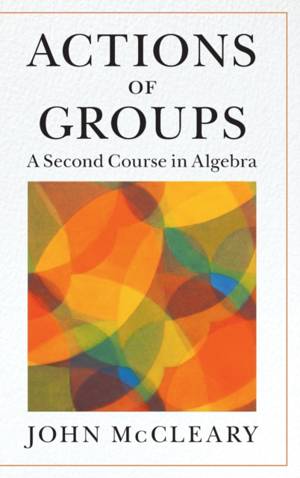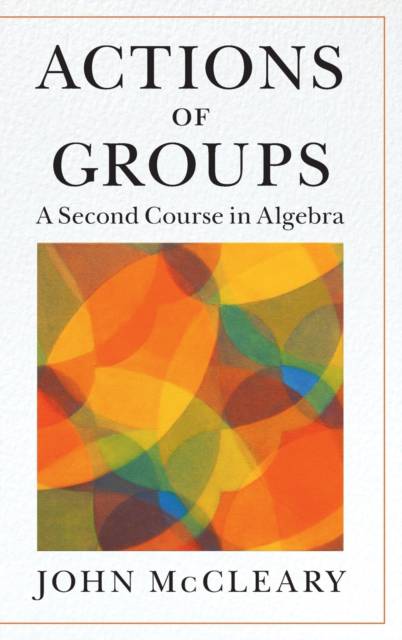
- Afhalen na 1 uur in een winkel met voorraad
- Gratis thuislevering in België vanaf € 30
- Ruim aanbod met 7 miljoen producten
- Afhalen na 1 uur in een winkel met voorraad
- Gratis thuislevering in België vanaf € 30
- Ruim aanbod met 7 miljoen producten
Zoeken
€ 144,45
+ 288 punten
Uitvoering
Omschrijving
Using the unifying notion of group actions, this second course in modern algebra introduces the deeper algebraic tools needed to get into topics only hinted at in a first course, like the successful classification of finite simple groups and how groups play a role in the solutions of polynomial equations. Because groups may act as permutations of a set, as linear transformations on a vector space, or as automorphisms of a field, the deeper structure of a group may emerge from these viewpoints, two different groups can be distinguished, or a polynomial equation can be shown to be solvable by radicals. By developing the properties of these group actions, readers encounter essential algebra topics like the Sylow theorems and their applications, Galois theory, and representation theory. Warmup chapters that review and build on the first course and active learning modules help students transition to a deeper understanding of ideas.
Specificaties
Betrokkenen
- Auteur(s):
- Uitgeverij:
Inhoud
- Aantal bladzijden:
- 226
- Taal:
- Engels
Eigenschappen
- Productcode (EAN):
- 9781009158121
- Verschijningsdatum:
- 5/01/2023
- Uitvoering:
- Hardcover
- Formaat:
- Genaaid
- Afmetingen:
- 152 mm x 229 mm
- Gewicht:
- 498 g

Alleen bij Standaard Boekhandel
+ 288 punten op je klantenkaart van Standaard Boekhandel
Beoordelingen
We publiceren alleen reviews die voldoen aan de voorwaarden voor reviews. Bekijk onze voorwaarden voor reviews.











